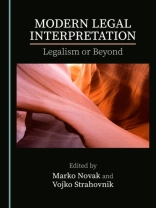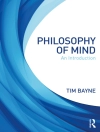Legalism or legal formalism usually depicts judges as resolving cases by allegedly merely applying pre-existing legal rules. They do not seem to legislate, exercise discretion, balance or pursue policies, and they definitely do not look outside of conventional legal texts for guidance in deciding new cases. For them, the law is an autonomous domain of knowledge and technique. What they follow are the maxims of clarity, determinacy, and coherence of law. This perception of law and adjudication is sometimes designated as "an orthodox lawyering". However, at least in certain cases, it is very difficult to say that legalism is not an inappropriate theory or a method of legal interpretation. Different theories have attested that legal interpretation is much more than just legalism, which appears to be far too naive. In the framework of modern legal interpretation, the following questions can be raised. Is it possible to integrate legalism in a coherent theory of legal interpretation? Is legalism as a distinctive theory of legal interpretation still a feasible theory of interpretation? How can such a formalist approach withstand a critique from Dworkinian moral interpretivism or accusations of being a myth, masking political preferences from legal realists? These and many other issues about legal interpretation are discussed in this book by prominent legal philosophers and legal theorists.
Marko Novak & Vojko Strahovnik
Modern Legal Interpretation [PDF ebook]
Legalism or Beyond
Modern Legal Interpretation [PDF ebook]
Legalism or Beyond
购买此电子书可免费获赠一本!
格式 PDF ● 网页 203 ● ISBN 9781527527041 ● 编辑 Marko Novak & Vojko Strahovnik ● 出版者 Cambridge Scholars Publishing ● 发布时间 2019 ● 下载 3 时 ● 货币 EUR ● ID 6872973 ● 复制保护 Adobe DRM
需要具备DRM功能的电子书阅读器












